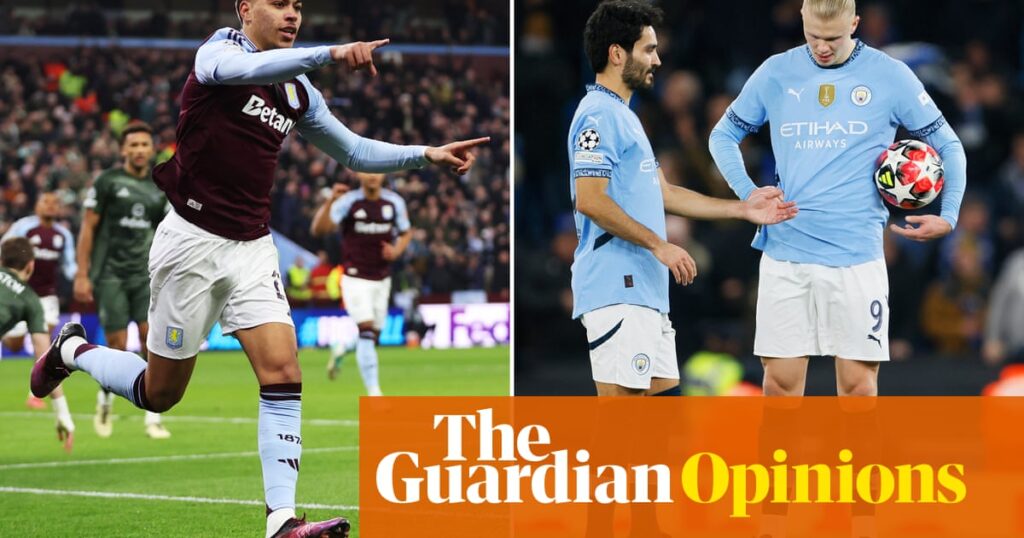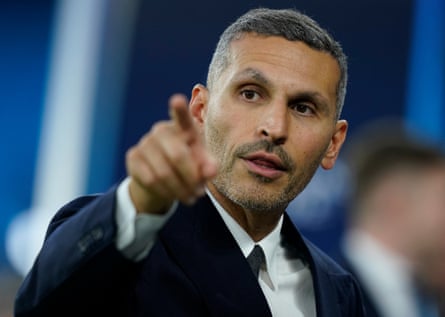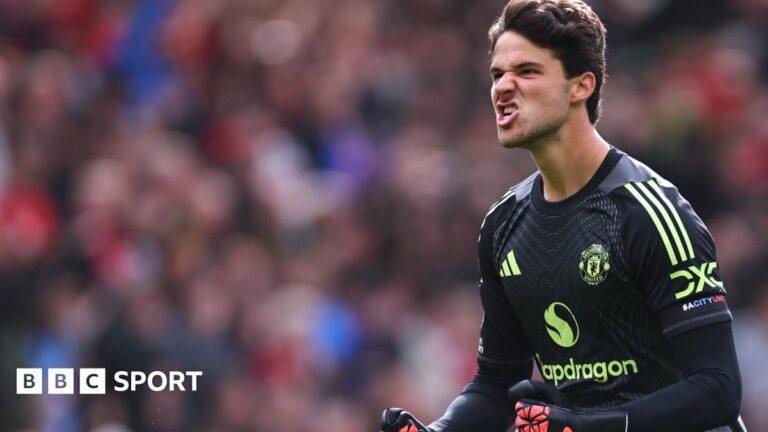
Happy one-year anniversary! How has it been? How do you feel? More, or less, in love? Have you counted down the days? Are you happier, wiser, more centred, like a man in a porridge advert going for a soulful morning run in a sunlit cul-de-sac?
Perhaps, to offer another perspective, you feel so viscerally nauseated at the prospect of leafing through the pre-planned partisan responses to a highly complex piece of legal wrangling there’s a danger your own intestines will liquefy and snort out of your nostrils straight into the toaster. Who knows? Maybe that was the point all along.
Either way, as of this week it is one year since the start of the Manchester City charges tribunal. Remember that old thing? The 115 charges, later upgraded to more than 130. Remember the sense of something urgent and real in train, but which already feels like a period piece, the kind of thing you might see on a clip-based nostalgia show, like Ocean Colour Scene or the Ebola virus?

Well, there’s only arms-length and disputed evidence, such as the leaked historical email from Simon Cliff, City’s legal kingpin, that suggested the club’s chair Khaldoon al-Mubarak “would rather spend £30m on the 50 best lawyers in the world to sue for the next 10 years” than submit to Uefa’s financial prodding. There was the unrelated comment in October 2024 that the league’s plan to update its rules rather than collapsing them was “an unwise course [which] would likely to lead to further legal proceedings with further legal costs”. Again. You do want it to stop, don’t you?
There is also the no doubt unintended consequences of City’s subsequent legal challenges to the associated party transaction rules, which both sides have claimed victory over, City despite failing on most of their points (again, this happens: just raise lots of points).
It was hard to understand exactly what the ultimate intention was here. The Lawyer magazine has noted City were “particularly eager for shareholder loans to be calculated retrospectively under the new rules”, despite having previously voted in favour of existing rules on that. This will now not happen. It would explain in part why the league feels it came out relatively unscathed, because this would have basically tied it in knots, a potential review of every loan to every club by every shareholder, a process that could have effectively collapsed its ability to function.
And this is all unsustainable in the long term. It’s a nightmare for the Premier League, which is not a legal entity but a light-entertainment production company whose rules are written in clear type, agreed to by everyone, and not really intended to be countered quite so aggressively. It’s a nightmare for its chief executive Richard Masters, who must have thought he was becoming a TV rights administrator, not a wartime prime minister. The clubs gave his predecessor a golden goodbye as a thank you. Masters’ key gift so far is a series of fraught legal briefings and, probably, an ulcer.
after newsletter promotion
By now City and their world-class squad of legal experts have the Premier League in a corner, intentionally or not. Even if they are substantively punished, which increasingly just feels unlikely given the timeframe and the brilliance of City’s legal team, there remains the threat of an appeal. Come. Keep coming. Follow us into the plains towards Moscow. How deep are your coffers? How strong is your will?
Plus the past year has coincided with a general shift in the landscape, threats to boundaries and delivery systems, other mega-competitions mushrooming up. Do you really want to pursue and potentially discredit your eight-time champions like this? Is your product really so robust and discrete you can afford the consequences?
More widely this already feels like a victory for the dominant paradigm in every other part of modern life: a victory for billionaire culture, for the idea of rules as a suggestion for the powerless.
And also for populism, for hard power masked by obfuscation. There is something wretched about the hot-button shouting tagged to the legal process by City’s mouthpieces, a rag-bag of stuff about elites, cartels and victimisation of the overclass.
Chuck in the free-market libertarian nonsense, the “commercial freedom” ideas parroted around this issue by people who don’t understand what a free market is (clue: it’s not a government spending above market on its propaganda project. This is market distortion. This is the command economy, chaps).
But then, this is just a glimpse through the lens of the autocratic billionaire life. This is l’état c’est nous. It’s the opposite of sport, and of the flawed but necessary machinery of semi-regulated capitalism. It skirts around the essential, as-yet unprocessed question of why a government would want to own a football club in the first place.
By now the best outcome for English football as a business entity is probably a settlement and a fudge. In realpolitik terms, everyone just needs it to stop. There is a suspicion, unfounded in hard facts, that there has already been horse trading around this, which may or may not be possible given the basic notion of an independent tribunal.
What does seem certain is the outcome will not harm City’s project in any real sense, that the prospect of punishment has already lent it purpose and drive, binding adversity, conspiracy waffle, victim energy. Booing the overclass, raising your fists to the cartel, this is all deeply exhilarating. Twelve months on it is hard to see an outcome where even losing, nominally, technically, has any real meaning.




